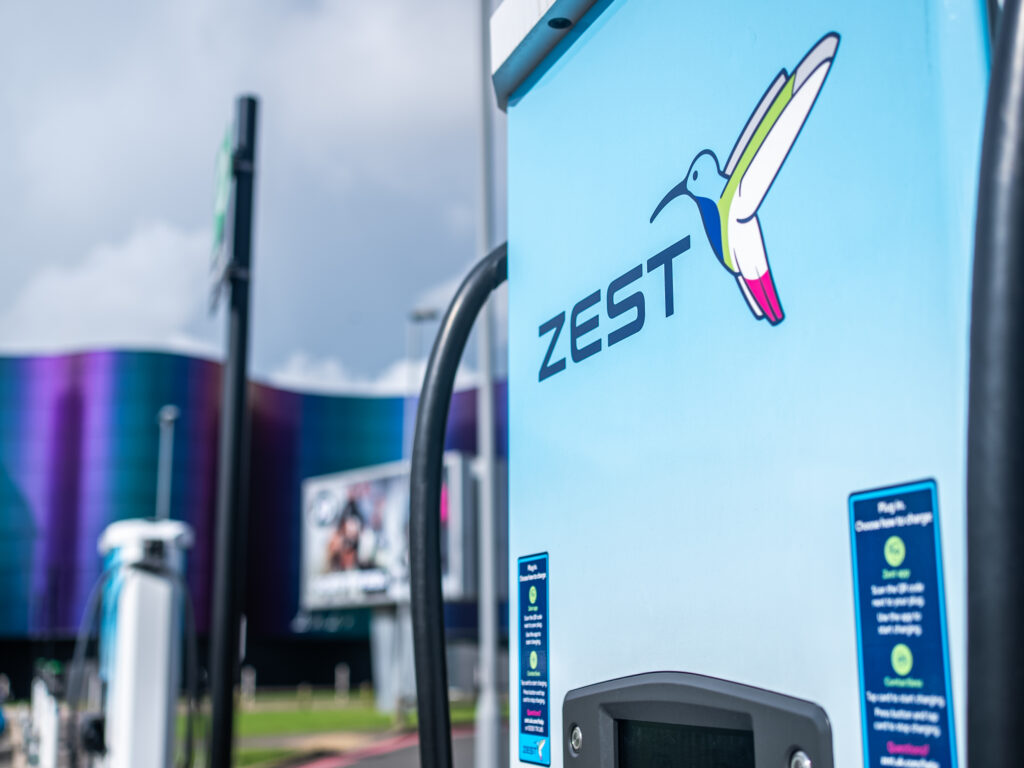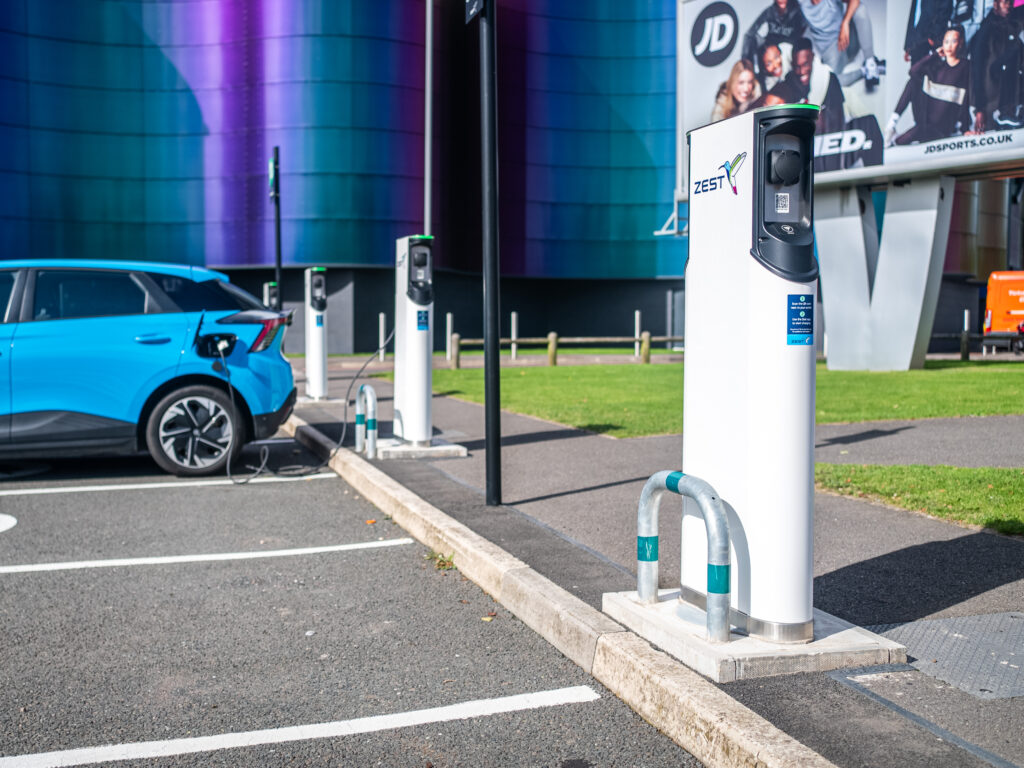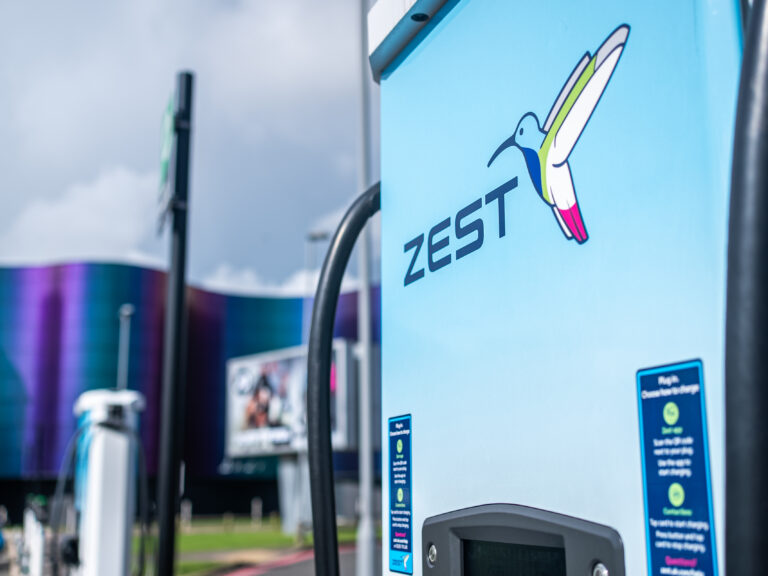Installing electric vehicle (EV) charging points at retail destinations provides many benefits for both retailers and EV-driving consumers. With the EV market experiencing rapid growth, the opportunity for retail destinations to tap into this expanding customer base is substantial.

Offering EV charging makes retail locations more attractive to EV drivers. A CACI survey* revealed that 55% of consumers would be more inclined to visit a specific location if it provided EV charging infrastructure. For retailers, this presents an immediate opportunity to draw in a tech-savvy and environmentally conscious demographic. With affluent groups such as “Affluent Achievers” and “Rising Prosperity” being the most likely to change shopping habits based on the availability of charging points, retailers who install these amenities stand to gain a loyal and high-spending customer base.
In addition to drawing in new customers, EV charging stations encourage shoppers to spend more time at a retail destination. Charging an EV often takes more than 30 minutes, meaning consumers are more likely to engage in longer shopping trips while they wait for their car to charge. Extending dwell time provides destinations with a unique opportunity to increase sales as shoppers explore stores, dine, or enjoy other amenities. CACI highlights the potential for increased revenue as a direct result of longer visitor stays, benefiting retailers through both immediate sales and repeat visits.
By installing charging stations now, retail destinations can establish themselves as part of EV drivers’ routines before habits are fully set. As EV ownership grows – CACI forecasts that over 50% of UK drivers expect to own an EV within five years – retailers who act early will benefit from customer loyalty. Waiting too long could mean missing out on the chance to become the go-to charging destination for these drivers, potentially losing market share to competitors who invest sooner in charging infrastructure.
Another advantage is the ability to attract first-time visitors who may come initially just to charge their vehicle. These visitors represent a new customer segment that retail destinations might not have otherwise reached. Once on-site, the chance to convert these visitors into regular shoppers increases, creating a new revenue stream.
EV charging stations also enable retailers to introduce innovative offers and partnerships, such as bundling charging discounts with retail purchases. For example, a retailer might offer discounted or free charging with a minimum spend in-store. This not only provides a purchase incentive but also strengthens the connection between shopping and charging, ensuring that customers see value in both the retail and charging experience.

It is clear that retail destinations that invest in EV charging infrastructure now will position themselves to capture a growing market, increase dwell times, establish early customer loyalty, and introduce new, engaging offers. With the rise in EV adoption and the growing consumer desire for sustainable options, retailers who act now stand to benefit greatly in the evolving retail landscape. These retailers not only meet consumer demand but also contribute to environmental sustainability, a key driver for many modern consumers.
Zest, a certified B Corp, partners with retail destinations to invest in and manage EV charging facilities. Their portfolio includes major projects at key retail hubs like Metrocentre Gateshead, Merry Hill in the West Midlands, Frenchgate Doncaster, and Chantry Place in Norwich. The success of these initiatives lies in providing a high volume of chargers to meet anticipated demand, ensuring ample availability, and delivering a seamless, reliable charging experience for users. This focus on both scale and convenience has been instrumental in making these locations attractive to EV-driving shoppers.
*retail and EV insights from CACI

For more information, please visit https://www.zest.uk.com/


